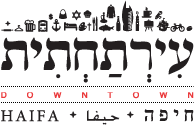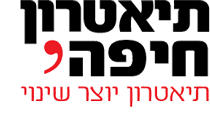Daliat el-Carmel
The Druze village of Daliat el-Carmel is located on the Carmel heights, in the heart of a park, southeast of Haifa. Its name originates from the many vines surrounding the village (Dalia = vine). This village is regarded as the largest Druze village in the country, and its property stretches over an area of some 10,000 dunams.
There are numerous historical sites surrounding the village, such as the Muhraka, the Carmelite Monastery, and others. Its location on the main road with accommodating climatic conditions, fertile soil, a ravishing landscape and diverse vegetation have drawn many settlers.
Today, the village population consists of approximately 13,000 residents. The majority of the population are members of the Druze community.
The villagers are known for their hospitality and the preservation of their cultural heritage, this while leading a modern lifestyle. The Druze community was founded in the 11th century by the pious Fātimid ruler Tariqu l-Hakīm, also known as al-Hakīm bi-Amru l-Lāh who ruled Egypt. He founded a monotheistic religion, an offshoot of the Islamic Ismailia Movement, whose origins stem from the Koran and other philosophical manuscripts, as well as Arabic, Persian, Greek and other ancient eastern beliefs. By origin, the Druze were called "al-Muwahhidun": those who believe in the unity of God. Nonetheless, they are also called "Sons of Ma'aruf," or sons of benevolence, due to their generosity, courage and integrity.
The Druze religion is divided into two groups
1. Al Uqqāl: a group of clergymen who possess the sole knowledge of the secrets of the Druze religion and who are obligated to uphold its commandments in entirety.
2. Al Juhhāl: the secular group which is not entitled to read the holy book, although the majority of its members maintain the faith's traditions and customs. He who shall maintain a religious life and abide by the laws of the clergymen will be entitled to become a member ofAl Uqqāl, following a period of suitable training.
Members of the Druze community have served in all forces of the IDF since 1956. Many of them are decorated soldiers and brave warriors. Numerous Druze warriors have lost their lives in the course of Israel's wars and are buried in military cemeteries in the northern cities of the country and the Carmel.
Visitors to the village walk along its many picturesque alleys, winding between its old buildings, houses of worship (Helwa), holy places, historic structures, oil-presses, weaving mills and art galleries.
During the tour, visitors can become familiarized with a typical Druze residence and its furnishings and belonging, and experience typical customs, folklore, traditional food and garments.
At Daliat el-Carmel, numerous B&Bs are situated between the village houses and offer visitors warm Druze hospitality.
The market is located at the heart of the village and is a meeting place of old and new that draws tourists and visitors seeking to experience the atmosphere up close.
Attractions in Daliat el-Carmel:
Abu Antar
Factory for authentic handicrafts made of fabric and other materials.
The Oliphant House: The House is named after Sir Lawrence Oliphant, who lived there together with his wife, Lady Alice Oliphant, and his secretary, Naphtali Herz Imber, who composed the national anthem "Hatikvah" while staying in that house. The house was built in antique English style on a hill overlooking the sea. It serves as a commemoration site for the fallen Druze soldiers. There is a unique memorial room, a lecture hall built inside a tunnel adjacent to the Oliphant House. Also adjacent to the House is a brick wall covered with paintings documenting the signing of Israel's peace treaties with Egypt and Jordan, as well as a breathtaking observation point overlooking the sea.
Muhraka: A Carmelite Monastery situated at the tip of the mountain in Daliat el-Carmel. According to tradition, here is where Prophet Elijah fought with the emissaries of Baal. The location consists of a church, grove, beautiful garden and a remarkable observation point on the roof of the monastery, from where you can see views in all directions.
For information, please call 050-760628.
Daliat el-Carmel is accessible by bus 192, as well as by special or service taxis.











